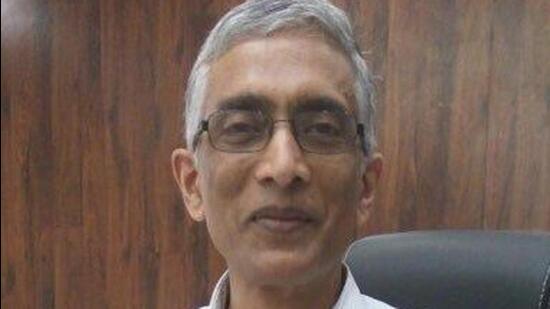Parameswaran Iyer named new Niti Aayog chief
Paramwesaran Iyer served as secretary to the Government of India at the Department of Drinking Water and Sanitation, which fell under the newly formed Ministry of Jal Shakti, from March 2016 until August 2020, and led the implementation of the Swachh Bharat Mission
Former drinking water and sanitation secretary Parameswaran Iyer, who led the Centre’s flagship Swachh Bharat Mission, was on Friday appointed as chief executive officer (CEO) of Niti Aayog, the Cabinet Appointments Committee said.

Iyer will replace Amitabh Kant, who is scheduled to demit office on June 30.
A 1981-batch officer of Uttar Pradesh cadre, Iyer will serve as Niti Aayog CEO for two years or until further orders, whichever is earlier, according to a notification released by the committee. His appointment has been made on the same terms and conditions as were applicable for Kant, the notification added.
Iyer opted for voluntary retirement from the IAS in 2009, after 17 years of service, to join water and sanitation initiatives at the World Bank.
However, in 2016, he returned to serve as secretary of the department of drinking water and sanitation till 2020.
He spearheaded the Centre’s flagship Swachh Bharat Mission, a campaign to eradicate open defecation. He has over 25 years of experience in the water and sanitation sector and has worked in several countries, including Vietnam, China, Egypt and Lebanon.
Iyer headed the innovative community-led Swajal Project (a rural water supply and environmental sanitation project which began with assistance from World Bank) in Uttar Pradesh and Uttarakhand in the 1990s.
Kant was appointed as Niti Aayog CEO on February 17, 2016, for a fixed two-year term. He was later given an extension till June 30, 2019. His term was further extended for two years till June 2021, and then another one-year extension was given till June 30 this year.
During his tenure, Kant drove the Aspirational Districts Program, which aims to improve the socio-economic outcomes in some of the most backward districts of the country through a mix of data-based governance, competitive federalism and collaborations.
“I have had a wonderful experience since NITI has been inter-dimensional. It cuts across several segments and ministries, and as a new institution there was immense potential to mould it,” Kant said.
“We were able to transform 112 districts of India on social indicators. As a former DPIIT secretary, it was also a focus to increase ease of doing business in India. We also did a lot of work to drive electric mobility, green hydrogen and the production-linked incentive schemes, which aim to promote Make in India. We have managed to surpass most of our targets, and the last six years have been a very exciting time.”
He added that the infusion of lateral entrants and young talent has managed to create a phenomenal change in the economy. “We drove artificial intelligence in India using Atal Tinkering Lab,” he said.
Kant said that NITI has to focus now on climate change and environmental concerns, as well as looking at manufacturing and social development. “NITI will also have to look at manufacturing and in the eduction sector, cutting across ministries and coordinating. NITI will need to play a crucial role in increasing the participation of women in the labour force as well,” he said.
HT reached out to Iyer for a comment but couldn’t immediately get one.






